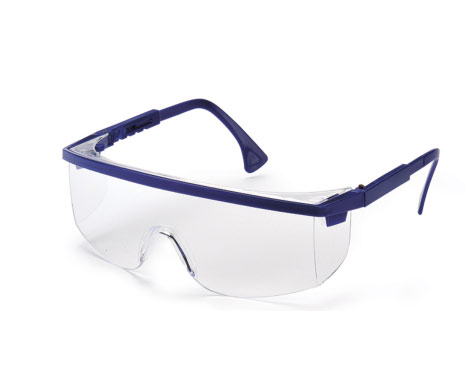Buying a new pair of glasses can be a real headache. Faced with so many types and styles of glasses, it may be more that you are dazzled but have no way to start. A key difference in eyewear selection is that you should know what kind of eye protection you need, and here we are talking about regular glasses vs safety glasses that we often refer to.
Eye protection is important at work and at home. Whether you work in a challenging environment or wear glasses because of the demands of everyday life, you may be wondering whether you should buy regular glasses or safety glasses. Below we will introduce the difference between safety glasses and ordinary glasses for you, and help you quickly make the right choice by considering the following differences when purchasing glasses!
We already know that regular glasses and safety glasses are not the same. Whether at work or at home, safety glasses are designed to provide the best protection for your eyes. For this reason, safety glasses have become the preferred choice for many people.

Lenses are one of the most obvious differences between safety glasses and regular glasses. The lenses of safety glasses are made of different types of materials, with polycarbonate being the most popular. They are able to offer a higher standard of impact resistance than ordinary glass lenses, and in addition to being more impact resistant, they are also lighter. Polycarbonate lenses are prone to scratches due to their softness, but eyeglass wearers can purchase scratch-resistant coatings to reduce scratches on polycarbonate lenses. Whether they contain prescription lenses or not, the lenses of safety glasses will better protect your eyes. Glass lenses are generally suitable for many different types of scenarios, but they might not be ideal if you're working in challenging conditions. Safety glasses meet ANSI standards through a series of safety tests, showing that it can protect your eyes in the most challenging environments. But regular eyewear usually doesn't meet these higher safety standards.
Safety glasses frames are made from a variety of materials, but the most popular material is nylon because of its flexibility and light weight. The frames of regular eyeglasses can also be made from a variety of materials. Plastic or a different type of metal such as titanium are most common.
Like the lenses, the frames of safety glasses are designed to withstand higher impact forces and are tested to determine their durability. In contrast, the frames of ordinary eyeglasses are not designed to withstand major impacts. It's easy to see how important it is to wear safety glasses if you're doing a challenging job. If you wear ordinary glasses, if you drop them accidentally, the lenses and frames are likely to break, and more seriously, it will cause eye injuries, which may cause irreparable consequences.
Understanding the difference between safety glasses and ordinary glasses can help you better choose suitable glasses. T-safety provides you with a variety of safety glasses, if you have any needs or questions, please feel free to contact us.
Copyright © Hebei Sinotools Industrial Co.,Ltd. All Rights Reserved | Powered by  Sitemap
Sitemap